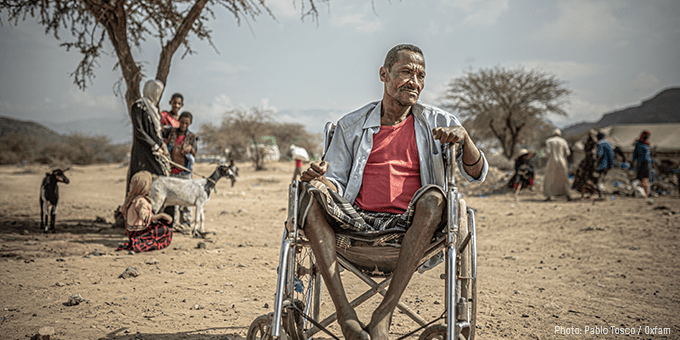Oxfam welcomes the release of the Climate Change Commission’s draft report on cutting New Zealand’s pollution, but says that doing our fair share for 1.5 degrees means much more ambitious action is needed now than the Commission currently recommends.
Oxfam New Zealand Campaigns Lead, Alex Johnston, said: “We can use this report as a launching pad to step up our efforts to tackle global heating, but doing our fair share is going to mean a lot more than tinkering around the edges. We must move faster to get policies implemented.”
Johnston said: “The Commission’s plan will not meet even our existing Paris Agreement target for 2030, which the Commission themselves found to be inconsistent with global efforts for limiting heating to 1.5 degrees.
“The draft emissions budgets leave the bulk of pollution cuts for later in the 2030s. That means we’re also relying on New Zealand purchasing offshore carbon credits to meet our 2030 Paris target, leaving other nations to make up the shortfall.
“This is a blow to those in the Pacific and other countries on the frontlines of climate change, as New Zealand is burning through much more than our fair share of the remaining carbon budget this decade,” said Johnston.
“We can bring forward a whole lot of the policies the Commission recommends, like no new coal and gas installation anywhere, phasing out gas-guzzling cars, and properly pricing agricultural emissions. What’s more, we can invest the billions we’d have to pay in offshore carbon credits to surge ahead in our domestic transformation with a just transition to a thriving, low-emissions society,” Johnston said.
He added: “This domestic action must go alongside standing with the people who are right now experiencing the impacts of climate breakdown: that means at least doubling our climate finance for those in the Pacific and developing countries worldwide.”
Johnston said it was encouraging to see the Commission’s consideration of global equity in its recommendations to increase New Zealand’s Paris Agreement targets, but that the analysis did not filter through into the domestic emissions budgets that the Commission drafted.
He said: “When we consider New Zealand’s fair share of global efforts to limit heating to 1.5 degrees, our action at home needs to be scaled up. The Commission has rightly placed importance on global equity in the need to boost our international action, but hasn’t yet reflected this in their domestic emissions budgets, which are too low to even meet our current international target.
“If New Zealand is to do our fair share to protect our planet and build a safe climate future, we need a cohesive and ambitious plan with global equity at its heart.”
-ends-
Notes to editors:
- The Commission’s first three emissions budgets use the interquartile range of IPCC 1.5-degree pathways. This assumes that New Zealand would decarbonise at average rate, not taking into account our status as a highly developed country. By contrast, the NDC analysis, finds that Aotearoa should make significantly deeper reductions by 2030 than the average country, due to the country’s economic capacity.
- The Commission suggested NZ’s Paris Agreement target should be increased to much more than 35% reductions below 2005 levels by 2030. Oxfam’s estimates of New Zealand’s fair share are of at least an 80% reduction below 1990 levels by 2030, or 99% when historical responsibility is taken into account.
For more information or to arrange an interview, please contact:
Kelsey-Rae Taylor on [email protected] or +6421 298 5894.








